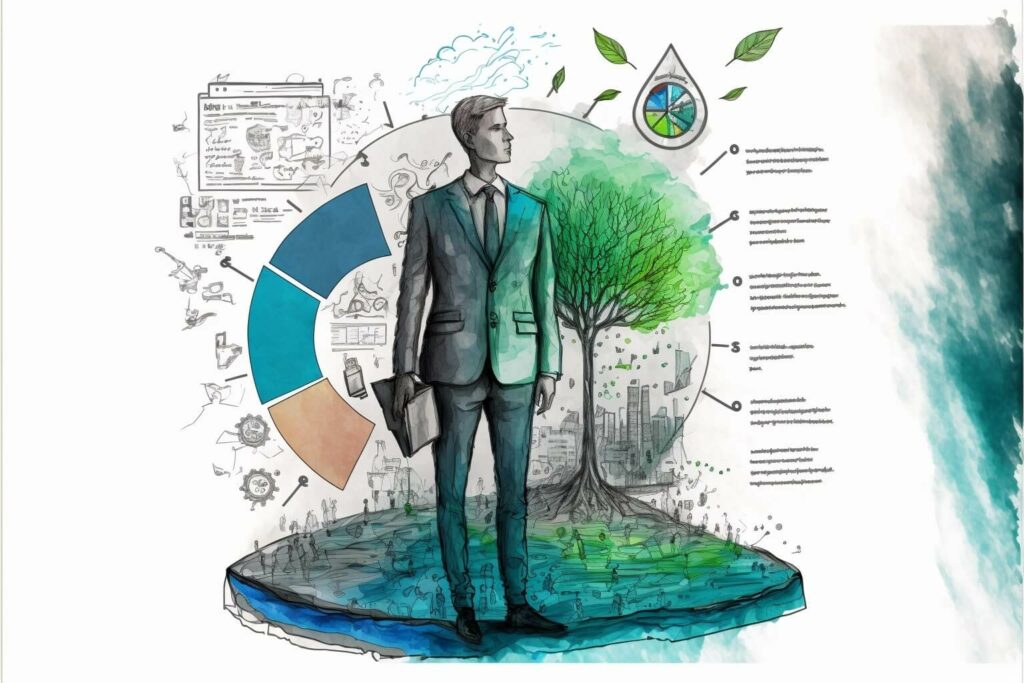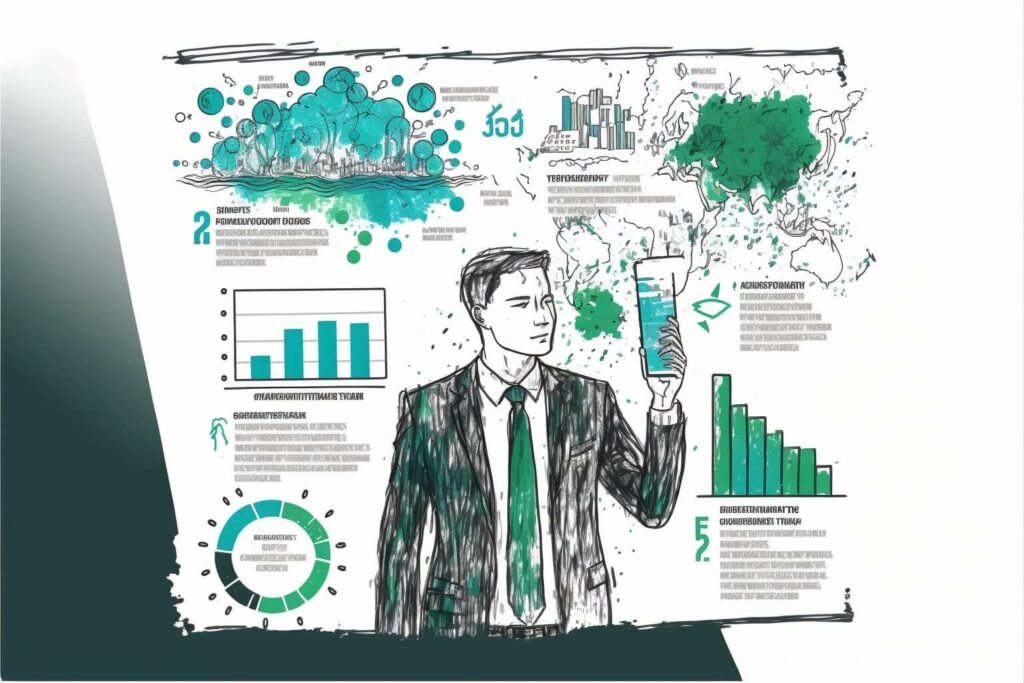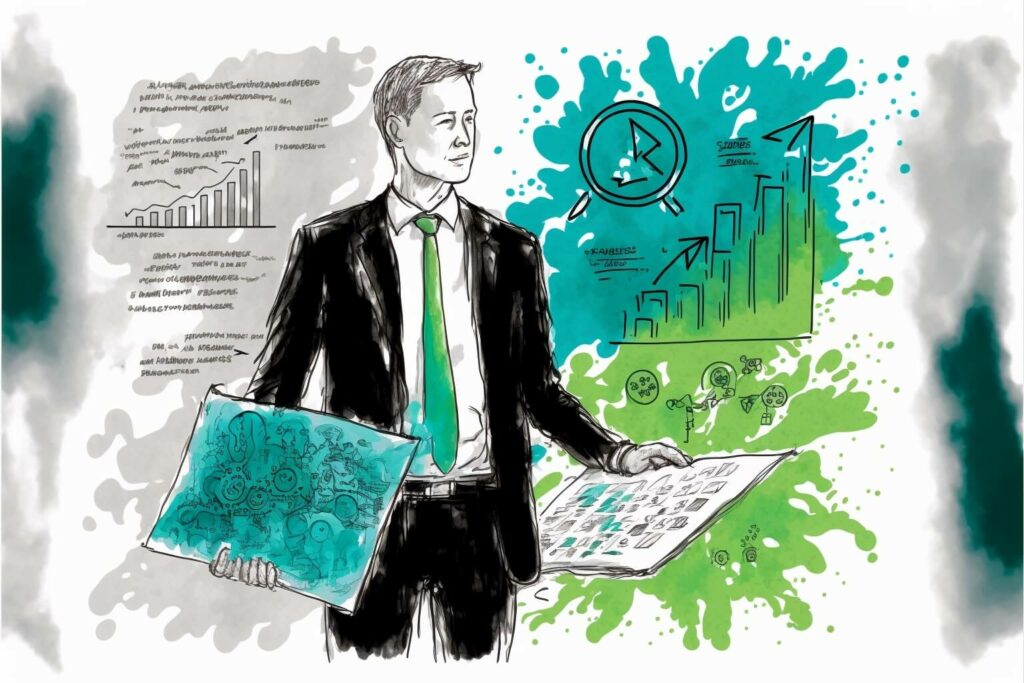






A 2-day immersion into the future of sustainable construction
Sustainability consulting is a rapidly growing field that is helping organizations of all types and sizes to improve their environmental, social, and economic performance.
Sustainability consultants work with businesses, governments, and other organizations to identify opportunities to reduce environmental impact, improve social responsibility, and increase economic efficiency.
This article will explore how sustainability consultants can help organizations become more sustainable, the benefits of sustainability consulting, and the key factors to consider when choosing a consultant.
We will also discuss the trends and best practices in the field of sustainability consulting and how they fit into the larger corporate sustainability landscape.
If you are interested in learning more about how sustainability consulting can help your organization to create long-term value for all stakeholders, we encourage you to read on.


What is a sustainability consulting?
Sustainability consulting is a professional service that helps organizations to improve their environmental, social, and economic performance.
Sustainability consultants work with businesses, governments, and other organizations to identify opportunities to reduce environmental impact, enhance social responsibility, and increase economic efficiency.
Sustainability consulting aims to help organizations become more sustainable and create long-term value for all stakeholders. This includes customers, employees, shareholders, and the broader community. Sustainability consultants may work on various issues, including energy efficiency, waste reduction, renewable energy, water management, transportation, and supply chain management.
Sustainability consultants may be hired to conduct assessments, develop strategies and action plans, implement projects, and track and report on progress. They may also be involved in training and capacity building, helping organizations to develop the skills and knowledge they need to become more sustainable over time.
There are many approaches to sustainability consulting, and consultants may come from various backgrounds, including engineering, business, environmental science, and public policy. Some sustainability consultants specialize in a particular industry or sector, such as manufacturing, retail, or healthcare, while others have a more generalist focus.
Sustainability consulting is an emerging field, and it is growing as organizations worldwide recognize the importance of sustainability and the need to address environmental and social challenges. Sustainability consultants are critical in helping organizations navigate this rapidly changing landscape and identify opportunities for positive change.
So, sustainability consulting is a crucial aspect of the betterment of the world.
What do sustainability consultants do?
Sustainability consultants are professionals who help organizations to improve their environmental, social, and economic performance. They work with businesses, governments, and other organizations to identify opportunities to reduce their environmental impact, improve their social responsibility, and increase their economic efficiency.
There are many different things that sustainability consultants do, depending on the needs of their clients and the specific issues they are working on.
Some everyday tasks that sustainability consulting companies may be involved in include:
- Conducting assessments: Sustainability consultants may be hired to conduct evaluations of an organization’s environmental and social impacts. This may involve gathering and analyzing data on energy use, water consumption, waste production, and other environmental factors.
- Developing strategies and action plans: Based on the assessment results, sustainability consultants may help organizations develop strategies and action plans to become more sustainable. This may involve identifying specific goals and targets, such as reducing energy consumption or increasing the use of renewable energy.
- Implementing projects: Sustainability consultants may work with organizations to help them achieve sustainability goals. This may involve designing and implementing new systems and processes, training employees, and providing support and guidance throughout the project.
- Tracking and reporting on progress: Sustainability consultants may also be involved in monitoring and reporting on the progress of sustainability initiatives. This may involve collecting and analyzing data, preparing reports, and communicating findings to stakeholders.
In addition to these specific tasks, sustainability consultants may also be involved in training and capacity building, helping organizations to develop the skills and knowledge they need to become more sustainable over time. They may also work with organizations to engage stakeholders, such as employees, customers, and communities, in sustainability efforts.
Overall, the goal of sustainability consultants is to help organizations to become more sustainable and to create long-term value for all stakeholders. They play a critical role in helping organizations to navigate the rapidly changing landscape of sustainability and to identify opportunities for positive change.
So, sustainability consultants are essential for the betterment of the world.












A 2-day immersion into the future of sustainable construction
How can a sustainability consultant help my organization?
A sustainability consultant can help your organization in several ways.
Here are just a few examples of how a sustainability consulting company can assist your organization:
- Identify opportunities for improvement: Sustainability consultants can help your organization to identify opportunities to reduce its environmental impact, improve its social responsibility, and increase its economic efficiency. This may involve assessing areas where your organization can reduce energy consumption, water usage, or waste production.
- Develop strategies and action plans: Based on the assessment results, a sustainability consultant can help your organization develop a plan of action to become more sustainable. This may involve setting specific goals and targets, such as reducing greenhouse gas emissions or increasing the use of renewable energy.
- Implement projects: Sustainability consultants can work with your organization to implement projects that will help you to achieve your sustainability goals. This may involve designing and implementing new systems and processes, training employees, and providing support and guidance throughout the project.
- Track and report on progress: Sustainability consultants can also help your organization track and report on the progress of its sustainability initiatives. This may involve collecting and analyzing data, preparing reports, and communicating findings to stakeholders.
- Build capacity: Sustainability consultants can help your organization to develop the skills and knowledge it needs to become more sustainable over time. This may involve providing training, coaching, and other forms of support to help your organization build internal expertise in sustainability.
Overall, a sustainability consultant can help your organization to become more sustainable, reduce its environmental impact, and create long-term value for all stakeholders. By working with a sustainability consultant, you can tap into the expertise and experience of a professional who can help your organization to navigate the rapidly changing landscape of sustainability and identify opportunities for positive change.
What are the benefits of sustainability consulting?
Sustainability consulting has many benefits for organizations of all types and sizes.
Some of the critical benefits of sustainability consulting include the following:
- Improved environmental performance: By working with a sustainability consultant, your organization can identify opportunities to reduce environmental impact and improve resource efficiency. This may involve reducing energy consumption, water usage, and waste production and increasing renewable energy and other sustainable practices.
- Enhanced social responsibility: Sustainability consulting can help your organization improve its social responsibility and better understand and address its stakeholders’ needs and concerns. This may involve engaging with employees, customers, and communities to identify and address social and environmental issues and to build trust and reputation.
- Increased economic efficiency: Sustainability consulting can help your organization to increase its economic efficiency and to reduce costs. This may involve identifying opportunities to streamline operations, reduce waste, and increase the use of sustainable practices, which can help reduce costs and improve profitability.
- Enhanced reputation and brand value: By demonstrating your commitment to sustainability, your organization can enhance its reputation and brand value. This can help to attract and retain customers, employees, and investors and to differentiate your organization from competitors.
- Compliance with regulations and standards: Sustainability consulting can also help your organization to comply with relevant rules and standards, such as environmental laws and industry-specific requirements. Working with a sustainability consultant ensures that your organization complies with these requirements and minimizes the risk of legal and regulatory issues.
Overall, sustainability consulting can provide a wide range of benefits to organizations looking to improve their environmental, social, and economic performance. By working with a sustainability consultant, you can tap into the expertise and experience of a professional who can help your organization to navigate the rapidly changing landscape of sustainability and to identify opportunities for positive change.


How do I find a sustainability consulting company?
If you are looking to find a sustainability consultant for your organization, there are several steps you can take:
- Determine your needs: The first step in finding a sustainability consultant is to clarify your requirements and objectives. What issues do you want to address? What goals do you want to achieve? Understanding your needs will help you to identify the right consultant for your organization.
- Research potential consultants: There are many sustainability consultants available, so it is essential to do your research to find the best fit for your organization. Look for consultants with experience and expertise in the specific areas you are interested in, and consider their track record, credentials, and references.
- Contact potential consultants: Once you have identified a list of potential consultants, reach out to them to learn more about their services and experience. Ask about their approach to sustainability consulting, past projects, and availability.
- Evaluate proposals: After receiving recommendations from potential consultants, evaluate them to determine which is the best fit for your organization. Consider factors such as the consultant’s experience, expertise, and approach, as well as the cost and terms of the proposal.
- Make a decision: Once you have evaluated the proposals, select the consultant that best meets your needs and budget. Be sure to communicate your decision to the other potential consultants and clarify any outstanding issues before moving forward.
By following these steps, you can find a sustainability consultant who is well-suited to your organization and its needs. Finding the right consultant may take time and effort, but it will be worth working with a professional who can help your organization achieve its long-term sustainability goals.












A 2-day immersion into the future of sustainable construction
What should I consider when looking for sustainability consulting?
When choosing a sustainability consultant for your organization, there are several factors you should consider to ensure that you select the best fit for your needs.
Some of the critical things to consider when looking for sustainability consulting include the following:
- Expertise: Look for a consultant with experience and knowledge in the specific areas you are interested in. This may include expertise in energy efficiency, waste reduction, renewable energy, water management, or other sustainability-related areas.
- Track record: Consider the track record of the consultant you are considering. Have they completed similar projects in the past? Do they have a good reputation in the industry?
- Credentials: Look for a consultant with relevant certificates and qualifications, such as a degree in a related field or certification in a specific area of sustainability.
- Approach: Consider the consultant’s approach to sustainability consulting. Do they have a proven methodology for assessing and improving sustainability performance? Do they offer a range of services that meet your needs?
- Cost: Cost is an essential factor when choosing a sustainability consultant. Be sure to get proposals from multiple consultants and compare their costs to determine the best value for your organization.
- References: Ask for references from the consultant you are considering. Talk to their past clients to better understand their experience working with the consultant and the results they achieved.
Considering these factors, you can select a sustainability consultant well-suited to your organization and its needs. Finding the right consultant may take time and effort, but it will be worth working with a professional who can help your organization achieve its long-term sustainability goals.
How much does sustainability consulting cost?
The cost of sustainability consulting can vary widely depending on several factors, including the project’s scope, the size and complexity of your organization, the consultant’s level of experience and expertise, and the location of your business.
Some consultants charge by the hour, while others charge a fixed fee or a percentage of the project cost.
Generally, you can expect to pay more for a consultant with more experience and expertise. Consultants specializing in a particular industry or sector may also charge a premium for their specialized knowledge.
To get a sense of the cost of sustainability consulting for your organization, it is a good idea to get proposals from multiple consultants. This will allow you to compare the prices and services offered by different consultants and select the one that best meets your needs and budget.
It is also essential to remember that the cost of sustainability consulting is likely to be a small fraction of the potential cost savings and benefits your organization can achieve through improved sustainability performance.
By working with a sustainability consultant, you can identify opportunities to reduce your environmental impact, improve your social responsibility, and increase your economic efficiency, which can all contribute to long-term value for your organization.


What are the trends in sustainability consulting?
Sustainability consulting is a rapidly evolving field, and several trends shape how consultants work and their services.
Some of the key trends in sustainability consulting include:
- Increased focus on data and analytics: Sustainability consultants increasingly use data and analytics to help organizations understand their environmental and social impacts and identify improvement opportunities. This may involve using software and other tools to collect and analyze data on energy use, water consumption, waste production, and other sustainability-related metrics.
- Greater emphasis on stakeholder engagement: Sustainability consultants are also focusing more on engaging with stakeholders, such as employees, customers, and communities, to understand their needs and concerns and to build trust and reputation. This may involve conducting surveys, focus groups, and other forms of engagement to gather feedback and input.
- Rising demand for integration with business strategy: Organizations are increasingly looking for sustainability consulting that is integrated with their business strategy and helps them create long-term value. This may involve assisting organizations in identifying and prioritizing sustainability initiatives that align with their business goals and have the most significant potential impact.
- The growing use of digital tools and platforms: Sustainability consultants also use a more comprehensive range of digital tools and platforms to deliver their services and engage with clients. This may include online project management tools, collaboration platforms, and other digital tools to facilitate communication and collaboration.
- Increased focus on diversity and inclusion: There is a growing recognition that sustainability is closely linked to issues of diversity and inclusion, and consultants are increasingly focusing on these issues as part of their work. This may involve helping organizations to develop diversity and inclusion strategies and to incorporate these principles into their sustainability initiatives.
Overall, these trends are helping to shape the way that sustainability consultants work and the services they offer. By staying up to date on these trends, organizations can ensure that they are working with consultants who are equipped to help them navigate the rapidly changing landscape of sustainability and to identify opportunities for positive change.












A 2-day immersion into the future of sustainable construction
What are the best practices for sustainability consulting?
Sustainability consulting is a rapidly evolving field, and there are several best practices consultants can follow to ensure they deliver high-quality services to their clients.
Some of the essential best practices for sustainability consulting include:
- Conducting thorough assessments: A good sustainability consultant will comprehensively assess an organization’s environmental and social impacts before developing a plan of action. This may involve gathering and analyzing data on energy use, water consumption, waste production, and other sustainability-related metrics.
- Developing clear goals and targets: A good consultant will help an organization to set clear goals and targets for its sustainability initiatives and to create a plan of action to achieve these goals. This may involve setting specific, measurable, achievable, relevant, and time-bound (SMART) goals aligned with the organization’s business strategy.
- Engaging stakeholders: A good consultant will involve stakeholders, such as employees, customers, and communities, in the sustainability process. This may involve conducting surveys, focus groups, and other forms of engagement to gather feedback and input.
- Using data and analytics: A good consultant will use data and analytics to help organizations understand their sustainability performance and identify improvement opportunities. This may involve using software and other tools to collect and analyze data on energy use, water consumption, waste production, and other sustainability-related metrics.
- Providing training and capacity building: A good consultant will help organizations to build the skills and knowledge they need to become more sustainable over time. This may involve providing training, coaching, and other forms of support to help organizations develop internal expertise in sustainability.
- Staying current on industry trends and best practices: A good consultant will remain current on the latest trends and best practices in sustainability consulting and apply this knowledge to their work. This may involve attending conferences, participating in professional development opportunities, and staying informed about the latest research and developments in the field.
By following these best practices, sustainability consultants can ensure that they deliver high-quality services to their clients and help them to achieve their sustainability goals.
How does sustainability consulting fit into the larger field of corporate sustainability?
Sustainability consulting is a professional service that helps organizations to improve their environmental, social, and economic performance.
It is a vital part of the larger field of corporate sustainability, which encompasses the practices and strategies that organizations use to create long-term value for all stakeholders while minimizing their environmental and social impacts.
Corporate sustainability includes a wide range of activities and initiatives, such as reducing greenhouse gas emissions, increasing the use of renewable energy, improving resource efficiency, and engaging with stakeholders.
Sustainability consulting can help organizations to identify opportunities to implement these initiatives and achieve their sustainability goals.
Sustainability consultants work with organizations to assess their current sustainability performance, develop strategies and action plans, implement projects, and track and report on progress.
They may also be involved in training and capacity building, helping organizations to develop the skills and knowledge they need to become more sustainable over time.
Overall, sustainability consulting plays a critical role in helping organizations to navigate the rapidly changing landscape of corporate sustainability and to identify opportunities for positive change.
By working with a sustainability consultant, organizations can tap into the expertise and experience of a professional who can help them to improve their environmental, social, and economic performance and to create long-term value for all stakeholders.
Sustainability Consulting: Conclusion
In conclusion, sustainability consulting is a required field that is helping organizations to navigate the rapidly changing landscape of sustainability and to identify opportunities for positive change.
Whether you are a business owner, a government official, or a member of a nonprofit organization, sustainability consulting can provide a wide range of benefits, including improved environmental performance, enhanced social responsibility, increased economic efficiency, and a more substantial reputation and brand value.
Suppose you are interested in learning more about sustainability consulting and how it can help your organization. In that case, we encourage you to explore our green building consultancies and courses.
Our experienced consultants and expert instructors can provide the knowledge and skills you need to become a leader in sustainability and create long-term value for all stakeholders. So, take the first step towards a more sustainable future and discover our green building consultancies and courses today.












A 2-day immersion into the future of sustainable construction
If you need our services in the Portuguese language, click here.

